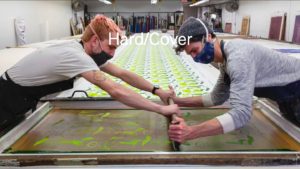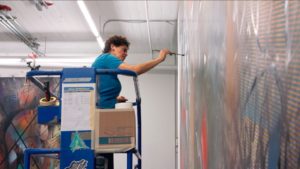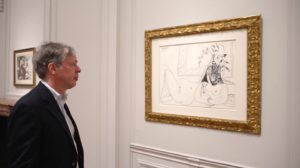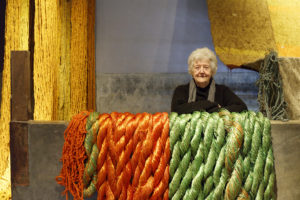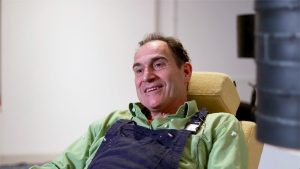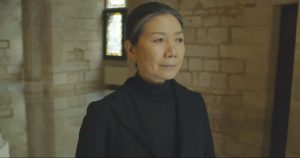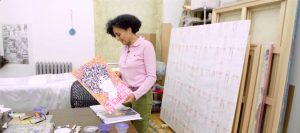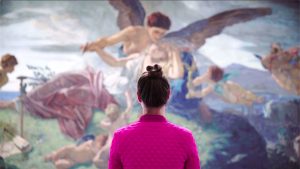
“The idea was to begin a conversation about equestrian portraiture and its relationship to painting. And also about masculinity, power, control – a lot of those subjects are things that I deal with quite a bit in my work. And equestrian portraiture occupies a certain space in painting, conceptually. I think it speaks to scale, it speaks to the hero-icizement and building of myths. It speaks also to the construction of identity, and those are things that I explore quite a bit in relation to the black male body in public space..” — Kehinde Wiley
Painter Kehinde Wiley is featured in a unique exhibition at the Brooklyn Museum right now, Jacques-Louis David Meets Kehinde Wiley, on through May 10, 2020.
From the Brooklyn Museum:
Kehinde Wiley’s triumphant Napoleon Leading the Army over the Alps (2005), a hallmark of our collection, comes face to face with the nineteenth-century painting on which it is based: Jacques-Louis David’s Bonaparte Crossing the Alps (1800–1). The unprecedented pairing of these two magisterial portraits, in the exhibition Jacques-Louis David Meets Kehinde Wiley, also marks the first time David’s original version of Bonaparte Crossing the Alps is on view in New York.
Seen together, the works by David and Wiley reveal how race, masculinity, power, and representation layer onto portraiture and shape the writing of history. Both paintings cast their protagonists—be it the French general Napoleon Bonaparte or an unnamed man in everyday streetwear—within a heroic tradition of equestrian portraiture. However, each artist defines an icon that reflects the unique political, historical, social, and artistic conditions of their day and age. This project emerges from a collaboration with the Château de Malmaison, France, whose presentation Kehinde Wiley Meets Jacques-Louis David (2019–20) unites both portraits in the historic home of Josephine and Napoleon Bonaparte.
In 2008, critic Robert Knafo for New Art TV visited Wiley in his studio as he worked on and discussed an epic new work of equestrian portraiture.









